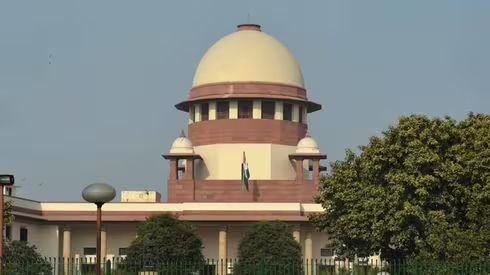Lagatar24 Desk
New Delhi: The Supreme Court on Wednesday raised serious concerns over the Centre’s move to eliminate the provision of ‘waqf by user’ from the Waqf Amendment Act, 2025, warning that such legislative changes could jeopardise the legal recognition of thousands of longstanding religious properties across India.
What Did the Supreme Court Say?
A bench led by the Chief Justice of India (CJI) questioned the treatment of properties that have been used consistently for religious purposes but lack formal documentation. “How will you register such waqfs by user? What documents will they have? It will lead to undoing something,” the court remarked.
The top court also raised questions regarding the exclusivity of Muslim representation in waqf boards, asking whether non-Muslims would be allowed to manage their religious trusts under a similar framework.
What is a Waqf?
A waqf is a permanent dedication of movable or immovable property by a Muslim for religious, pious, or charitable purposes under Islamic law. Managed by a mutawalli (caretaker), waqf properties cannot be sold or transferred.
Understanding ‘Waqf by User’
‘Waqf by user’ refers to properties such as mosques, graveyards, or dargahs that are treated as waqf without formal documentation, solely based on their uninterrupted public religious use over time.
This practice gained legal recognition in 2013 through the UPA government’s Waqf Amendment Act. It allowed community-accepted waqf properties to be registered without needing ownership papers, thereby protecting heritage religious sites that predate modern land laws.
Massive Numbers at Risk
Data from the Waqf Assets Management System of India (WAMSI) portal shows:
-
Total waqf properties: 8.72 lakh
-
Waqf by user properties: 4.02 lakh (almost half)
These include:
-
1.5 lakh graveyards
-
1.19 lakh mosques
-
Over 1.13 lakh shops, 92,505 houses, and 1.4 lakh agricultural land parcels
Why the 2025 Amendment is Controversial
The Waqf Amendment Act, 2025, introduced by the NDA government, eliminates or severely limits waqf by user. The new law mandates:
-
Only a practising Muslim of at least five years
-
Who is also the documented legal owner
-
Can declare a property as waqf
The Centre argues the 2013 law led to rampant misuse, including false claims over government or private lands as waqf. The new rules, they say, will prevent wrongful classification and boost transparency.
However, critics argue the move could erase centuries-old Islamic religious spaces that were maintained by communities but lack documentation.
The 2025 law retains protection for already registered waqf-by-user properties, but there are fears for the status of unregistered or disputed religious sites.
Historic Timeline of Waqf Laws in India
-
1913 & 1923: British-era laws recognising Muslim endowments
-
1954 & 1995: Wakf Acts creating State Waqf Boards and Central Waqf Council
-
2013: UPA-era reforms, including ‘waqf by user’ recognition and board inclusivity
-
2025: NDA-era amendments to tighten control and remove waqf-by-user provision
What Happens Next?
The Supreme Court, which has not yet passed a formal order, will continue the hearing on April 17.
Prominent legal names including Kapil Sibal, Abhishek Manu Singhvi, and Solicitor General Tushar Mehta are appearing for the petitioners and the Union government.







